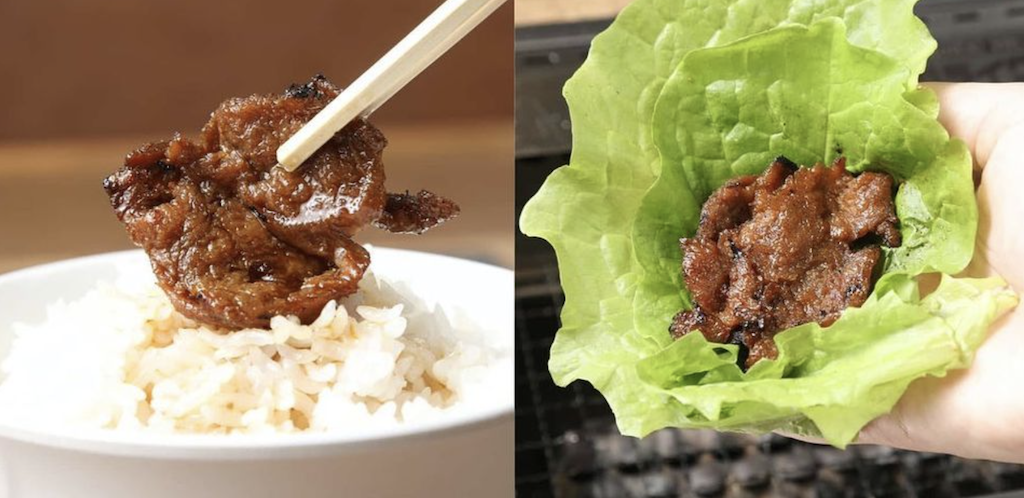2 Mins Read
There’s no doubt that Japan’s vegan scene is heating up, with the emergence of plant-based kombinis and big names like Muji and Mos Burger introducing new all-vegan options. But until now, there hasn’t been a vegan version of yakiniku, a popular Japanese barbecued or grilled beef dish typically served with rice. Japanese plant-based meat firm Next Meats has changed this and has released the country’s first-ever line of yakiniku alternative meats.
After launching its first product, a plant-based burger patty, Next Meats has taken on yakiniku-style vegan meats and just launched two new iterations of the product: harami and kalbi, two different types of grilled or barbecued beef cuts that are popular in Japanese cuisine. Called the “Next Yakiniku” series, both analogues are made from soy protein and contain no additives.
According to the firm, it doubles the amount of protein and rivals the flavour of its animal counterpart, while halving the fat content. Next Meats is currently selling its newest products online for ¥1,950 (US$18.70) per five frozen 80-gram packages.

The launch comes as consumer demand for plant-based foods in Japan and around the world reaches an all-time high, with recent research finding that the global plant-based market, boosted by the coronavirus pandemic, could hit US$74.2 billion by 2027.
Within Japan, there has been a tidal wave of product releases and news in the plant-based sector, the most recent being Japanese retail chain Muji’s decision to launch four new vegan meat alternatives across its online and brick-and-mortar stores, which include a burger patty, meatballs, ground minced meat and thinly sliced meat resembling chicken.

In the country’s capital Tokyo, vegan bakeries serve up dairy-free Japanese-style milk buns and a burger joint has turned their operations 100% plant-based, now serving only a range of vegan burgers.
Strong demand from consumers has even prompted Japan’s biggest chemical company, Shin-Etsu Chemical, to enter the fast-growing plant-based meat supply chain. It has recently developed a new binding agent, which can help improve the texture and structure of plant-based meat alternatives.
Meanwhile, plant-based startup Daiz, who has raised US$6 million in its Series A round and won an award at the Future Food Asia 2020 event, plans to open one of the biggest vegan meat factories in Japan that could produce 3,300 tonnes of soy-based meat annually.
All images courtesy of Next Meats.




